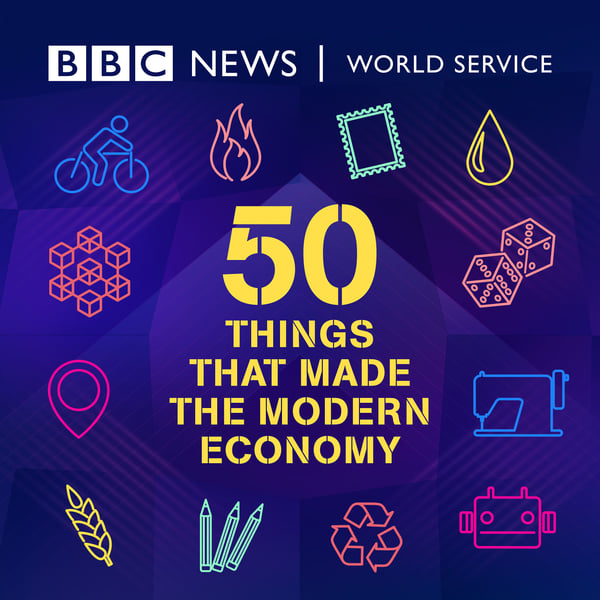Wedgwood
50 Things That Made the Modern Economy
BBC
4.8 • 2.6K Ratings
🗓️ 4 November 2019
⏱️ 10 minutes
🧾️ Download transcript
Summary
Transcript
Click on a timestamp to play from that location
| 0:00.0 | 50 Things That Made The Modern Economy With Tim Harford |
| 0:16.8 | To this manufacture, the queen was pleased to give her name and patronage, commanding |
| 0:21.9 | it to be called Queen's Ware, and honoring the inventor by appointing him her Majesty's |
| 0:28.7 | Potter. At least that was Josiah Wedgwood's story. His biographer, Brian Doleann, reckons |
| 0:36.9 | it's more likely that Queen Charlotte's command was Wedgwood's suggestion. She probably |
| 0:42.7 | saw it more as flattery than shrewd self-interest. Why more likely? Because Josiah Wedgwood was |
| 0:51.6 | a shrewd individual. He was perhaps the world's first management accountant as we heard |
| 0:57.4 | in this show's first series. He was a pioneering early chemist, endlessly experimenting with |
| 1:03.7 | new ways to treat and fire clay, and noting his results in a secret code less than a rival |
| 1:10.1 | steal his notebook. His first big breakthrough? The new kind of creamware or cream coloured |
| 1:17.0 | pottery from which he had fashioned the tea service that so impressed the queen. |
| 1:23.0 | He noted modestly, covered with a rich and brilliant glaze. Wedgwood was a lobbyist. In |
| 1:34.4 | the 1760s, North Staffordshire Potters had to dispatch their fragile wares over miles |
| 1:40.2 | of bone-shaking, pot-breaking roads to get to major cities. Wedgwood roused investors |
| 1:47.6 | and persuaded Parliament to approve a canal connecting the Trent and the Mercy, two major |
| 1:54.0 | English rivers. His fellow potters were delighted, until they realised that Josiah had |
| 2:00.3 | cannelly snapped up land and built his enormous new factory right on the banks of where the |
| 2:06.2 | canal would pass. But perhaps Josiah's most impressive achievement was solving a problem |
| 2:12.7 | in monopoly theory, two centuries before it was even articulated. The man who put the |
| 2:19.0 | problem into words was a Nobel Memorial Prize-winning economist called Ronald Kose. |
| 2:24.9 | Imagine, said Kose, that you're a monopolist. You alone produce a certain good. Many people |
| 2:32.2 | want to buy it, some would pay a lot, others much less, but still enough for you to turn |
... |
Please login to see the full transcript.
Disclaimer: The podcast and artwork embedded on this page are from BBC, and are the property of its owner and not affiliated with or endorsed by Tapesearch.
Generated transcripts are the property of BBC and are distributed freely under the Fair Use doctrine. Transcripts generated by Tapesearch are not guaranteed to be accurate.
Copyright © Tapesearch 2025.

